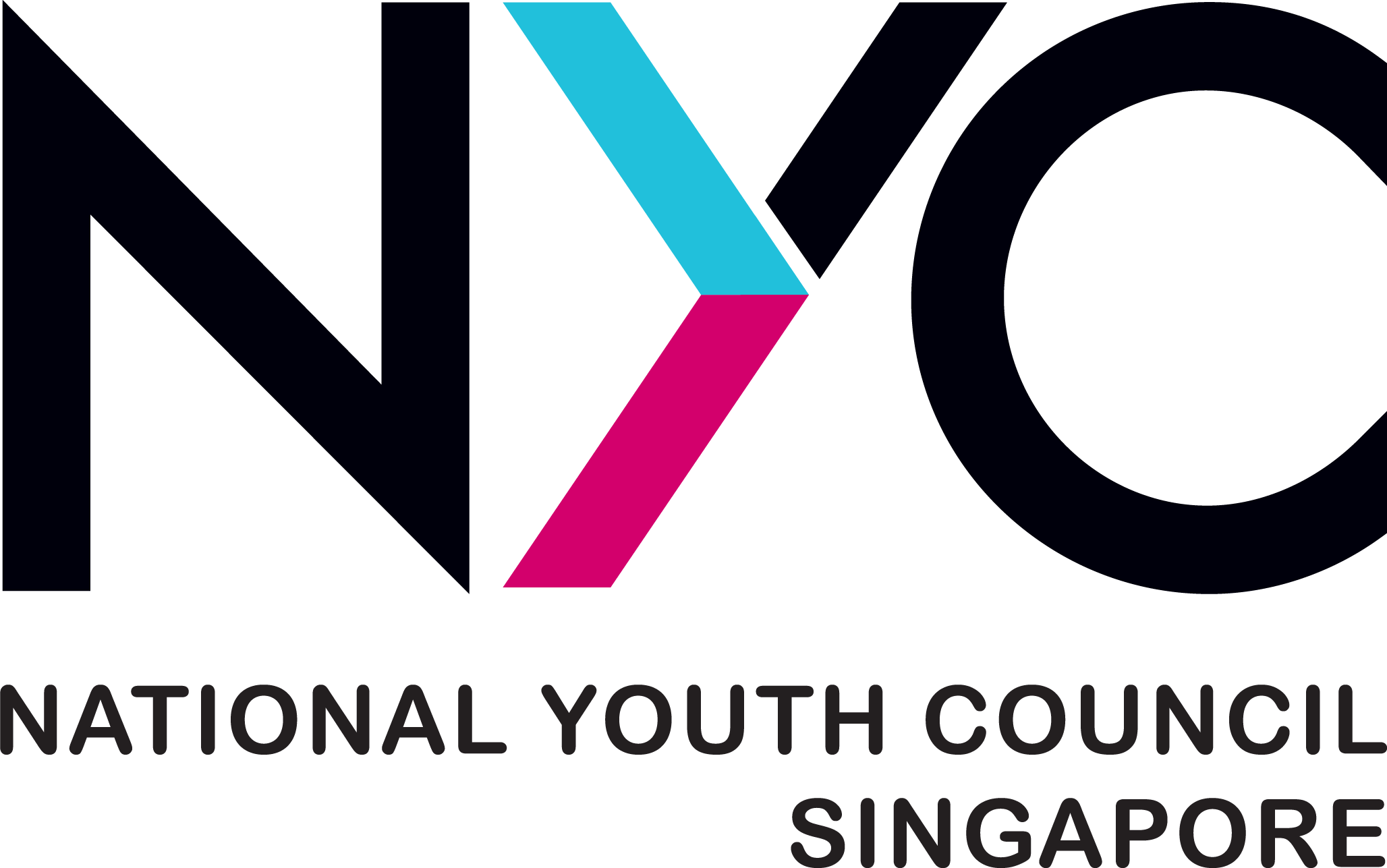- Home
- Research & engagement
- Youth Insights
- What are some employment concerns youths face and how can we support them?
What are some employment concerns youths face and how can we support them?
21 June 2025
In Singapore’s dynamic, economy, youths face growing challenges transitioning from school to work, worsened by global disruptions. This article explores trends in youth employment preferences and concerns.
.jpg)
In today’s ever-evolving globalised economy and rapid technological advancements, youths in Singapore face many uncertainties as they transit from school to work. Macro conditions such as the global supply chain disruption, growing economic nationalism, and the COVID-19 pandemic impacted global economic activity (Bloomberg News, 2023; Shih, 2020), and further exacerbated employment challenges for youths in Singapore.
However, despite facing challenging times (e.g., COVID-19), youths demonstrated resilience (Goh, 2022). As Singapore recovers from the pandemic, youths reported greater mean scores of subjective career success and perceived employability in 2021 than in 2020 (Youth Study on Transitions and Evolving Pathways in Singapore [Youth STEPS*] Wave 5, 2021).
Through the changing circumstances, we see some continuing trends that help us understand Singapore youths' employment preferences and concerns:
1. Youths Are Prioritising Finding Jobs Which Are Meaningful To Them And Allows For Adequate Work-Life Balance.
There are some important factors that youths are looking out for in their career. Youths today are searching for a meaningful career and one which can afford them adequate work-life balance.
Close to 7 in 10 youths in Singapore agreed that they would not stay in their job if the work they do is not meaningful (Figure 1; Youth Sentiment Poll, Oct 2022). But this sentiment is not solely unique to youths in Singapore. Globally, the Deloitte Global 2022 Gen Z and Millennial Survey also found that close to 4 in 10 Gen Zs and millennials have rejected a job or assignment as it did not align with their values and personal ethics (Deloitte, 2022).
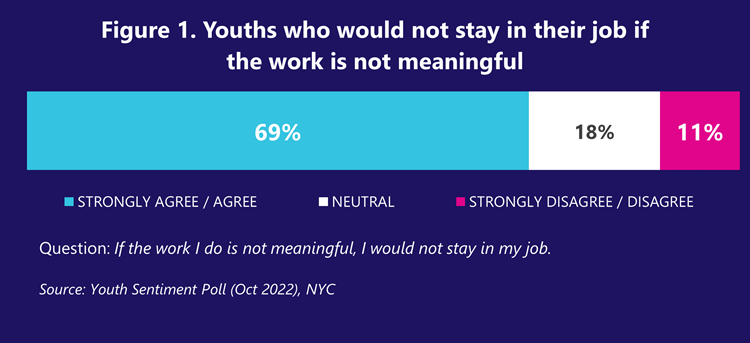
Figure 1: Youths who would not stay in their job if the work is not meaningful
Another key factor that youths would prioritise in their career is work-life balance. Youths have varying notions of what having such balance in life entails, with 34% of youths preferring the freedom to prioritise work/school and life as needed, and another 19% preferring to maintain strict boundaries between work/school and life. Only a small proportion (10%) believed that balance in life means an overall slower pace of life (Figure 2; Youth Sentiment Poll, Sep 2022). This suggests that, contrary to misconceptions of youths being increasingly laid-back (e.g., having less ambitious goals; Ng, 2019; Paulo et al., 2019), in general, they simply desire to have greater control and flexibility over their work and life priorities to the extent they prefer.
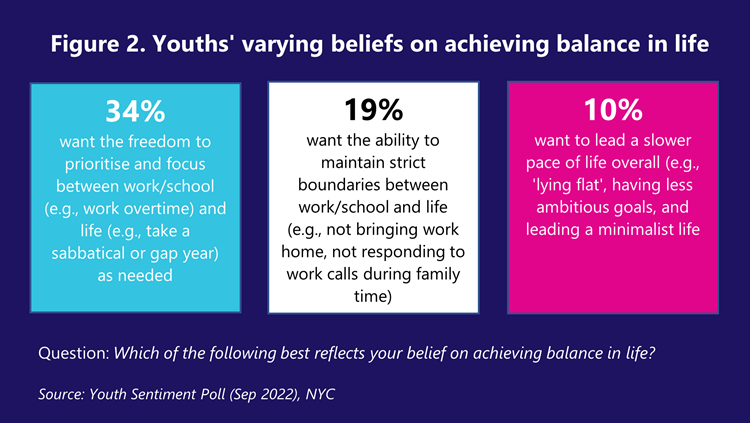
Figure 2: Youths' varying beliefs on achieving balance in life
2. Career Uncertainty May Be A Persisting Concern Among Youths In Singapore.
While youths today are searching for a career which aligns with their preferences, they are also doing so amidst much uncertainty. More than 4 in 10 youths (44%) were uncertain about their career prospects in 2021 and such concerns persisted into 2022 (40%), even as our economy continued to improve as we emerged from the COVID-19 pandemic in 2022 (Subhani, 2024; Figure 3; Youth Sentiment Polls, 2021-2022).
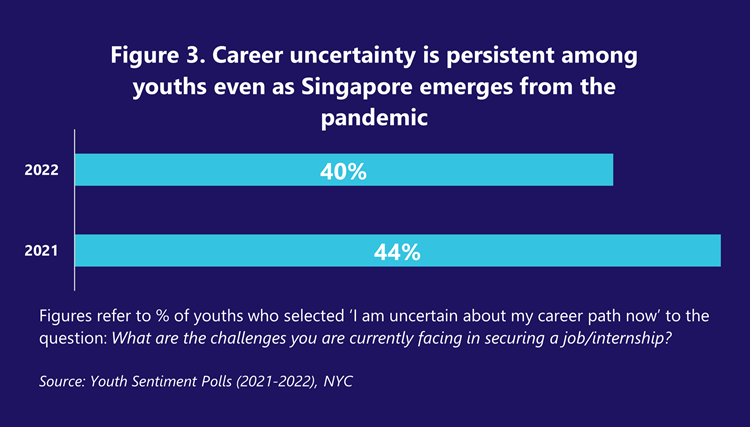
Figure 3: Career uncertainty is persistent among youths even as Singapore emerges from the pandemic
Beyond career uncertainty, other top challenges encountered by youths in search of jobs/internships included difficulty in attaining their preferred form of employment and longer than expected job searches (Youth Sentiment Poll, Feb 2023)
As youths continue to seek careers that are aligned with the aspirations, they can benefit from support to help them better navigate the uncertainties and challenges that they face:
3. Equip Youths With Soft Skills To Be Better Prepared For The Future Economy.
While slightly more than half of youths assessed they had the requisite knowledge and skills required in the future economy, the rest felt more tentative and less prepared (Figure 4; National Youth Survey [NYS], 2019). Youths also prioritise being future-ready, with over 1 in 3 youths (38%) feeling that the availability and accessibility of development opportunities to be future-ready is an area to be addressed (Youth Sentiment Polls, 2022). This indicates that youths are willing to and looking to upskill and reskill to ensure that they remain employable and relevant in the future workforce.
Self-reported skillsets such as leading a team and being good at making friends saw the greatest declines prior to the Covid-19 pandemic (NYS, 2019). As the future of work continues to evolve to include more remote working practices and transversal skills such as communication and social competencies increase in demand (Organisation for Economic Co-operation and Development [OECD], 2021), having the requisite soft skills can help our youths be more prepared to navigate different career pathways and thrive in diverse and dynamic environments.
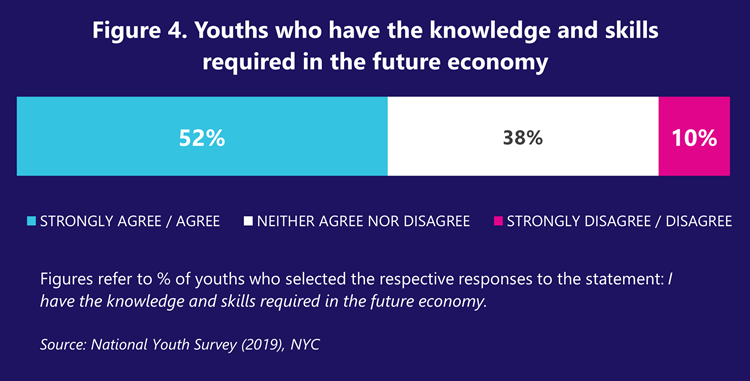
Figure 4: Youths who have the knowledge and skills required in the future economy
4. Provide More Career Guidance And Mentorship Opportunities During School-To-Work Transitions.
Another area which one-third of youths believed needs to be addressed is the provision of career guidance, mentorships, and support during school-to-work transitions (Youth Sentiment Polls, 2022). Youths who face challenges in career opportunities would like career guidance and planning support (Chong, 2022), to help them better understand their interests and strengths and explore potential career pathways. The On My Way (OMW) initiative by NYCis an education and career guidance resource that youths can tap on.
In the area of mentoring opportunities, despite high levels of participation in informal mentoring, only 30% of youths were aware of formal mentoring programmes (Mentoring Youth Sentiment Poll, 2021). Currently, majority of youths receive informal mentoring through their friends, parents, and colleagues, with 9 in 10 finding this to be beneficial. With 6 in 10 youths open to participating in formal mentoring and 5 in 10 youths perceiving career mentoring to be useful, this suggests that youths, particularly those graduating, can benefit greatly from formalised channels to seek guidance when making crucial employment decisions and navigating their career path.
*Youth STEPS is a longitudinal study conducted by the NYC and the Institute of Policy Studies (IPS) Social Lab of youths in Singapore aged 17 to 24 in 2017 to gain a life-course perspective of their experiences. The panellists were 20- to 27-year-old as of 2020.
If you’re a youth organization looking for partnership opportunities for youth development, get in touch with us here.
